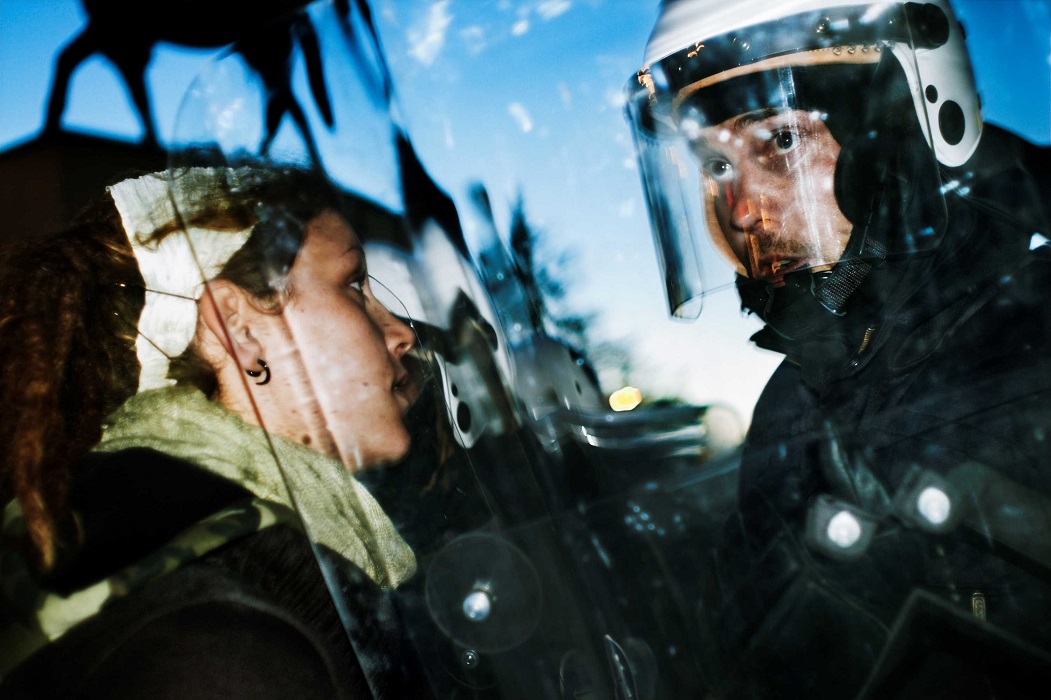The Finnish Tampere International Film Festival will take place for the 54th time from 6 to 10 March 2024. The five-day event will once again bring together film lovers and industry professionals in Tampere, the third largest city in Finland. During the festival week, more than a hundred film screenings will take place at Finnkino Cine Atlas and Arthouse Cinema Niagara. In addition to film screenings, there are also numerous public events aimed at professionals in the film industry.
Image above: Jouko Aaltonen, How to Fix the World, Courtesy, Tampere Film Festival
The festival, which focuses on short films, shows short films in both National and International Competition series, as well as a versatile theme programme. In addition, the programme presents feature-length documents. The main themes in the 2024 programme include the previously announced “Democracy in Danger”, which reflects on the state of democracy in Finland and the world, and “Forest”, which examines the many dimensions of the forest in the midst of the capitalist forest debate. In connection with both themes, open panel discussions will also be organized, where the panelists will be, for example, film directors and researchers from the Tampere University.
Short films from the South Caucasus region
In the programme, it is customary to highlight films from different parts of the world, and this year, especially films from the countries of the South Caucasus have been selected for the programme. Screenings “South Caucasus 1 and 2” curated by Riina Mikkonen, executive director of the film festival, offer different windows to Georgia, Armenia and Azerbaijan. During the last century, the area has served as a stage for conflicts, but there is also resistance and hope. The films in the screenings contain versatile storytelling, and they give a touch surface to different lives, historical events and cultural phenomena.
As part of the theme, the screening “Chai Khana: Female Voices of the Caucasus” will be shown, where the spotlight is especially on the women of the region and their experiences. Chai Khana is a multimedia platform operating in the South Caucasus region, which strives with its work to raise the voices that are often ignored by the mainstream media. The South Caucasus screenings continue the theme of social influence and democracy, which is strongly visible in the festival’s programme.
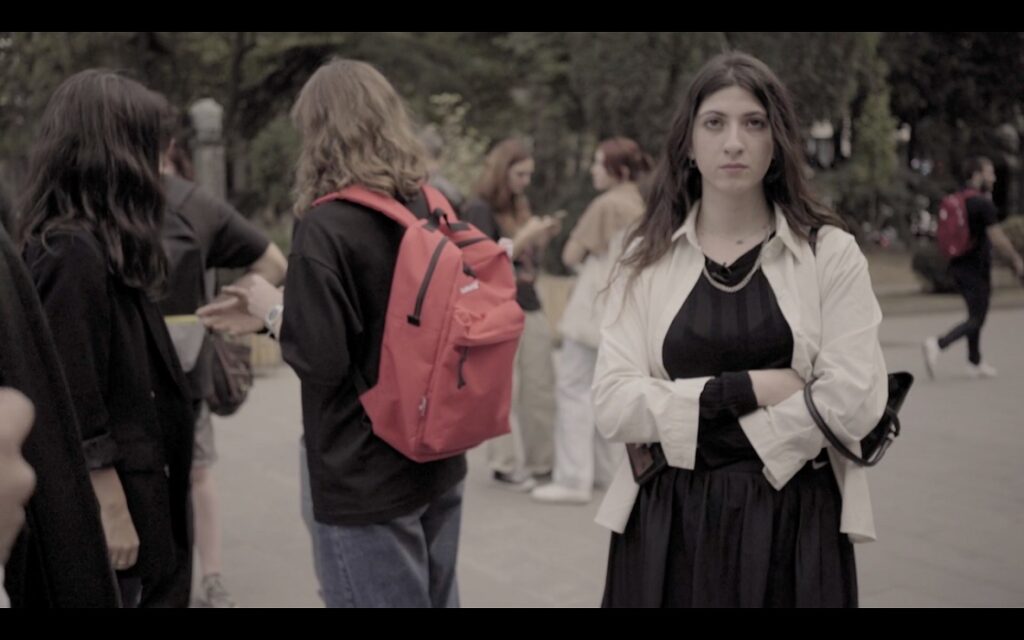
A celebration of animation – starring Iiti Yli-Harja
The programme also shows a lot of animation. “AniDocs 1: Society” and “AniDocs 2: Personal” tell stories about humanity, history and the search for identity. The screenings are assembled from documentaries that have been made using different ways of animation. Also, the animation education of Turku University of Applied Sciences’ Academy of Arts is celebrating its 30th anniversary at the Tampere Film Festival with two screenings. The screenings present a diverse range of student films from the school over the years.
Award-winning film director and musician Iiti Yli-Harja, who has become one of Finland’s most prominent animation directors and creators of short films, will be the star of this year’s “Retrospective” and “Carte Blanche” screenings. The retrospective screening covers Yli-Harja’s productions from the 2016 film “To Die in a Dream” all the way to last year’s film “I Smell a Mouse” (2023). The screening also includes the winner of the Jussi award for the best short film, “All My Mom’s Phone Calls” (2021), and “Blush – An Extraordinary Voyage” (2022), which won the Risto Jarva Prize at the Tampere Film Festival.
The “Carte Blanche” screening includes puppet animation, pixilation and video art. According to Yli-Harja, the screening celebrates randomness, joy and curiosity in filmmaking: “The films in the screening remind us that filmmaking can be the most fun possible thing to do, to wonder and experiment”.
Films and discussion about the state of democracy
The Democracy in danger programme set includes short film screenings and a long
documentary. The screenings deal with, for example, civic activism and democracy in
everyday life. The screenings will include recent short films from the 2020s, but also older
classics from the 1960s and 70s.
Among older short film productions, “Black Panthers” (1968) directed by Agnés Varda, which focuses on the protests related to the arrest of Black Panther Party founder Huey P. Newton in Oakland, California, will be shown. The most recent short film will be the Finnish Elokapina documentary “How To Save a Forest” (2023), which tells about the stages of the Talaskangas forest from the threat of logging to becoming a nature reserve. There will also be experimental documentaries shown in theme screenings such as “Cosmonauts” (2020) directed by Danila Gulin and “Last Day” (2021) directed by Cyprien Clément-Delmas.
Jouko Aaltonen’s film “How To Fix the World?” (2023) will be screened as a long documentary. The film is a handbook of direct action, where squatters, climate activists and anarchists share their experiences. Using archival footage, the film connects activists across generations.
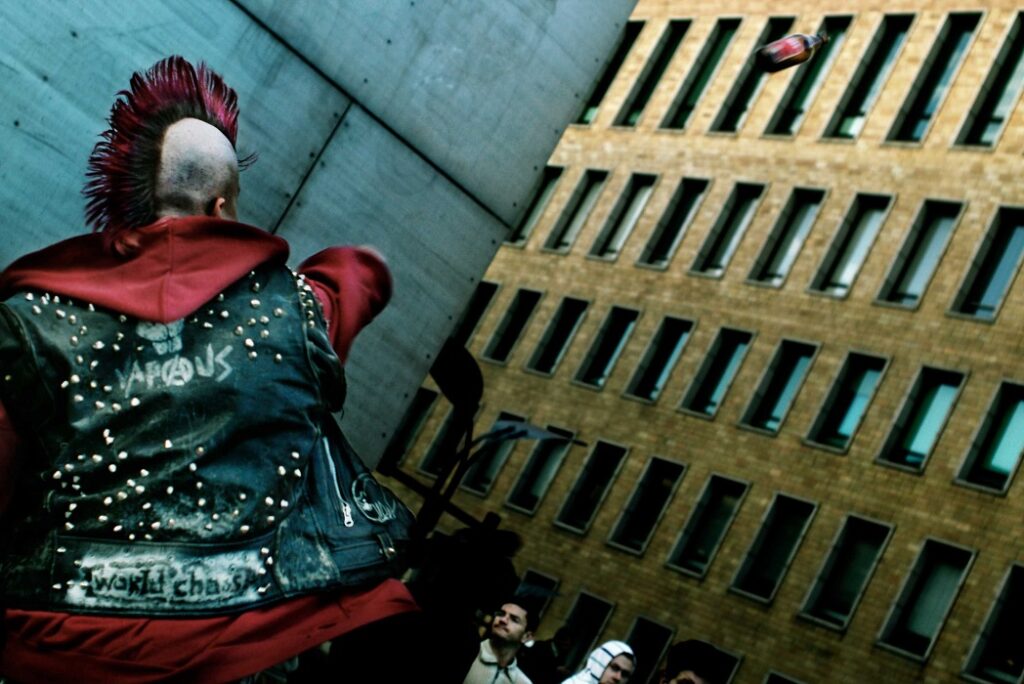
The forest from many perspectives
In the first screening is forestry, and the films shown in it comment on the forest from the perspective of various professions, such as loggers, berry pickers and tree planters. The screening will include, for example, the short film “How to Pick Berries” (2010), directed by Elina Talvensaari, which tells the story of Thai berry pickers in Finland. In Nick Jordan’s film “The Entangled Forest” (2023), ecologist Suzanne Simard talks about her groundbreaking research on the symbiosis of trees and fungi.
This idea continues in the second screening, in which the films present the forest as a home and habitat for many species. The screening includes, for example, two seldom-shown documentaries by Markku Lehmuskallio, “Sounds of the Northern Forests” (1973) and “Tapiola” (1974). Milja Viita’s “Animal Bridge U-3033” (2018) tells about the parallel realities of humans and wild animals. The Colombian fictional film “Tierra mojada” (Eng. Swamp) (2017) will also be screened. The film, directed by Juan Sebastián Mesa, is about a family, who is forced to evacuate due to a large hydroelectric project.
The namesake of the third screening, Salla Hämäläinen’s documentary “Metsänpeitto “(Eng. Covered by Forest) (2012), will be shown at the screening. The film tells the story of Markku, who has seen forest spirits since he was a child and felt that the spirits made him one with the forest. Judith Auffray’s experimental fiction “Les hommes de la nuit” (Eng. Men of the Night) (2022), on the other hand, tells the story of an explorer looking for orangutans in the jungle of Borneo at night and in the darkness of the day. In addition, Maija Blåfield’s film “Scenic View” (2023) will be screened. The film explores how the “naturalness” of nature documentaries is constructed, and how some things are intentionally left behind the scenes.
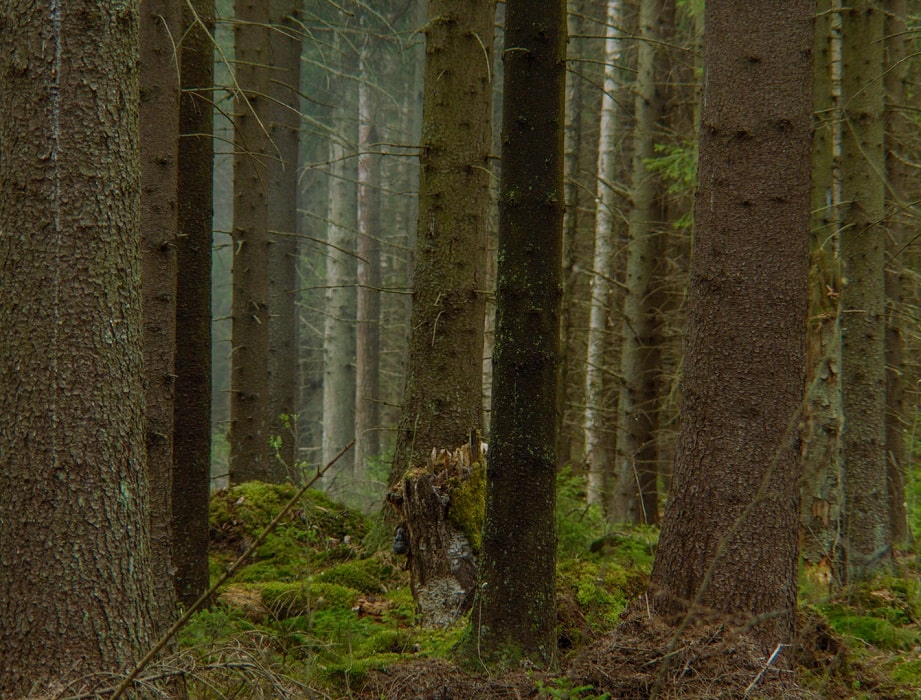
The forest theme will continue at the upcoming festival with the screening of AV-arkki, which will show several forest themed short films, such as Minna Parkkinen’s “A Forest”(2000), Annette Arlander’s “Dear Spruce” (2020) and Elina Brotherus’s “Dump a Bushel of Lemons in a Northern Forest in Winter” (2017).
Gems from the archives and special screenings
This time, Kai Oka’s decades-forgotten experimental films from the archives will be brought to the big screen in the screening “Lost Reels”, as well as gems from the history of Manserock and advertisements collected by the National Audiovisual Institute. “Finnish Film Archive 1: Manserock Phenomenon” offers an audiovisual cross-section of the most central bands and background influencers of the phenomenon. “Finnish Film Archive 2: The best of Finnish Commercial Films” goes through the history of Finnish commercial film in the years 1935–2000. Both winning works awarded in industry competitions and, more generally, commercial films that have remained in the nation’s memory have been selected for the screening.
Raimo “Rake” Silius’ traditional “Rake Special” is dedicated to legendary film directors: Matti Kassila (1924–2018), Risto Jarva (1934–1977), Jaakko Pakkasvirta (1934–2018) and Antti Peippo (1934–1989). Among other things, the screening will include the half-hour Tampere episode of Kassila’s feature documentary “The Faces of Three Cities” (1962), which, according to Silius, is “one of the most wonderful Tampere short films”.
The roar of history can also be experienced in the Tampere Film Festival and Yle Teema’s collaborative screening “Childhood in the South Seas”, which shows interconnected documentary films,”Monica in the South Seas” (2023) directed by Mika Taanila and Sami van Ingen and “Moana with Sound” (1926, 1981) by Robert, Frances and Monica Flaherty.
Other interesting special screenings are, for example, “Sámi Films in Focus”, which brings out Sámi filmmakers and Sámi stories, and !, performed in Tampere Cathedral accompanied by organist Esa Toivola, which will feature short films “Romu-Mattila and a beautiful woman” (2012), “Salaviinanpolttajat” (2017) and “A Distant Planet” (2023) by Juho Kuosmanen.
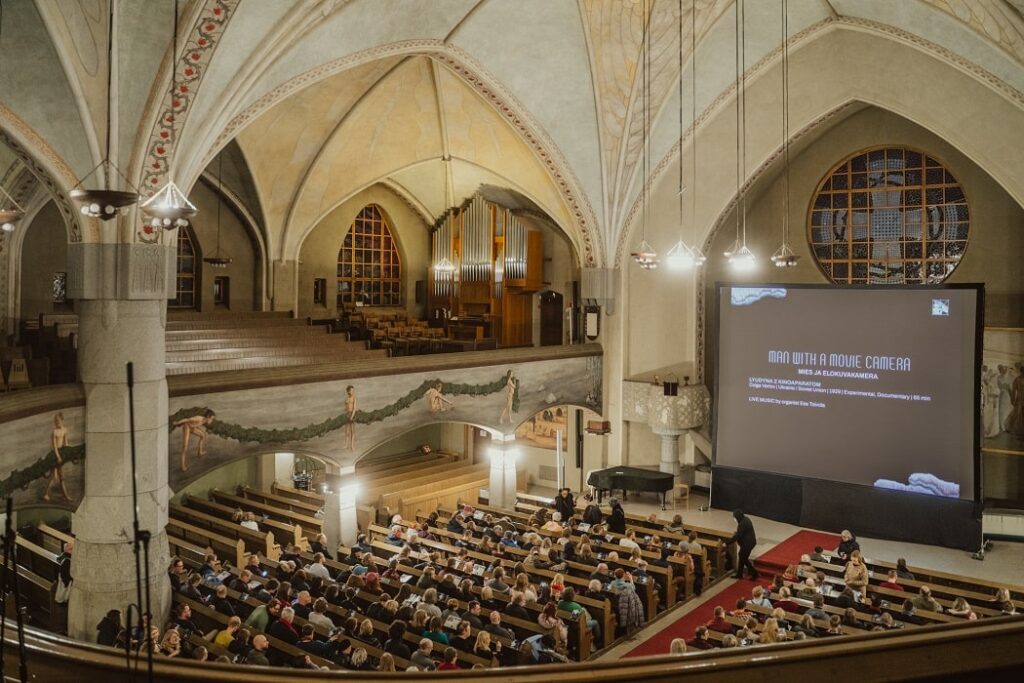
For kids
There are free “Minikino” screenings for the youngest in the family: “Minikino 1” is suitable for kids aged around 3 years and older, and “Minikino 2” is suitable for preschoolers and older viewers, as it brings slightly longer and more exciting stories to the screen. In addition, “Cinema Concert for Kids” is a free screening accompanied by film music composer Emil Sana.
WHEN?
Wednesday, 6. March – Sunday, 10. March
WHERE?
Different locations in Tampere, Finland
KOSTS?


